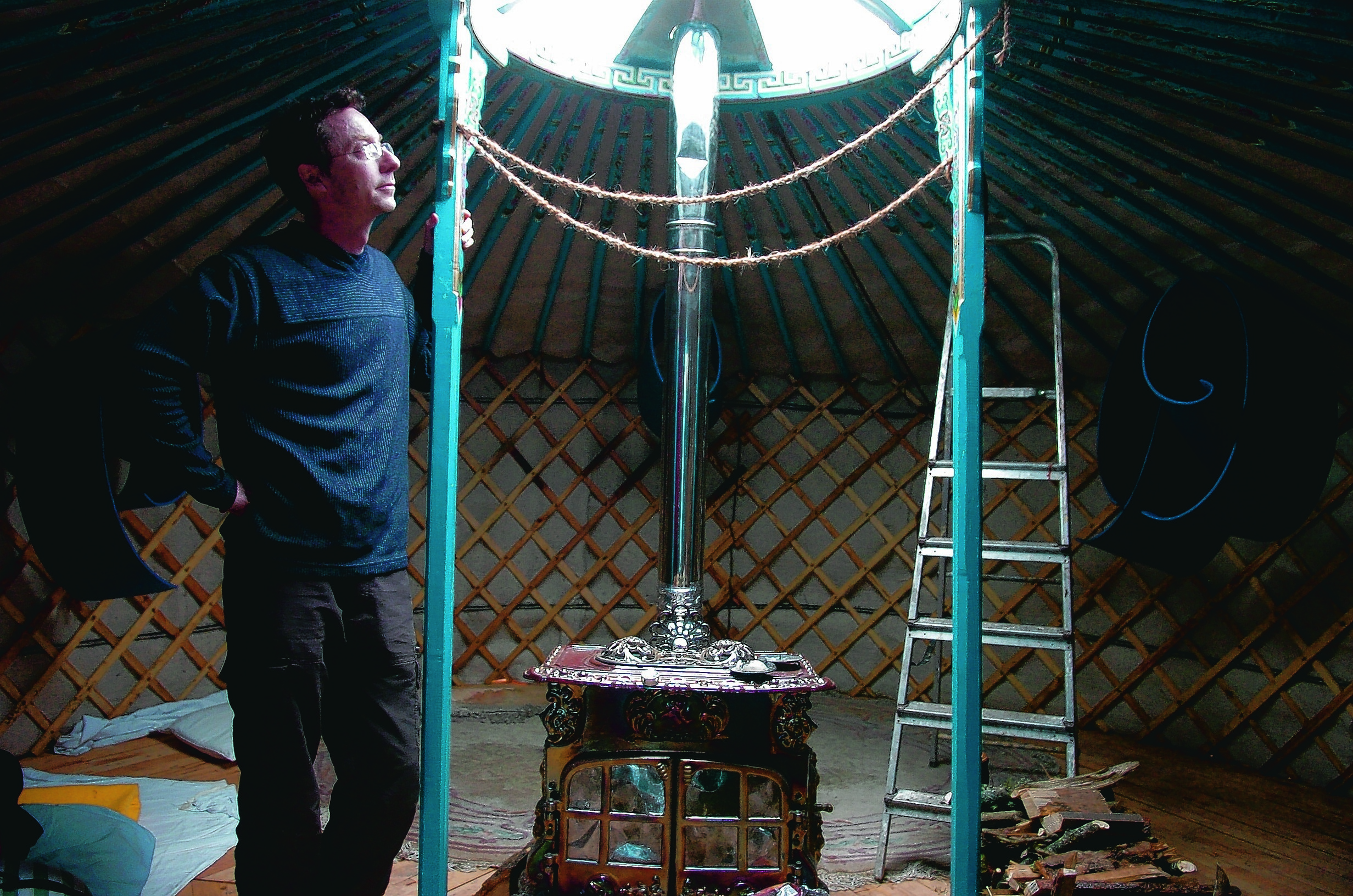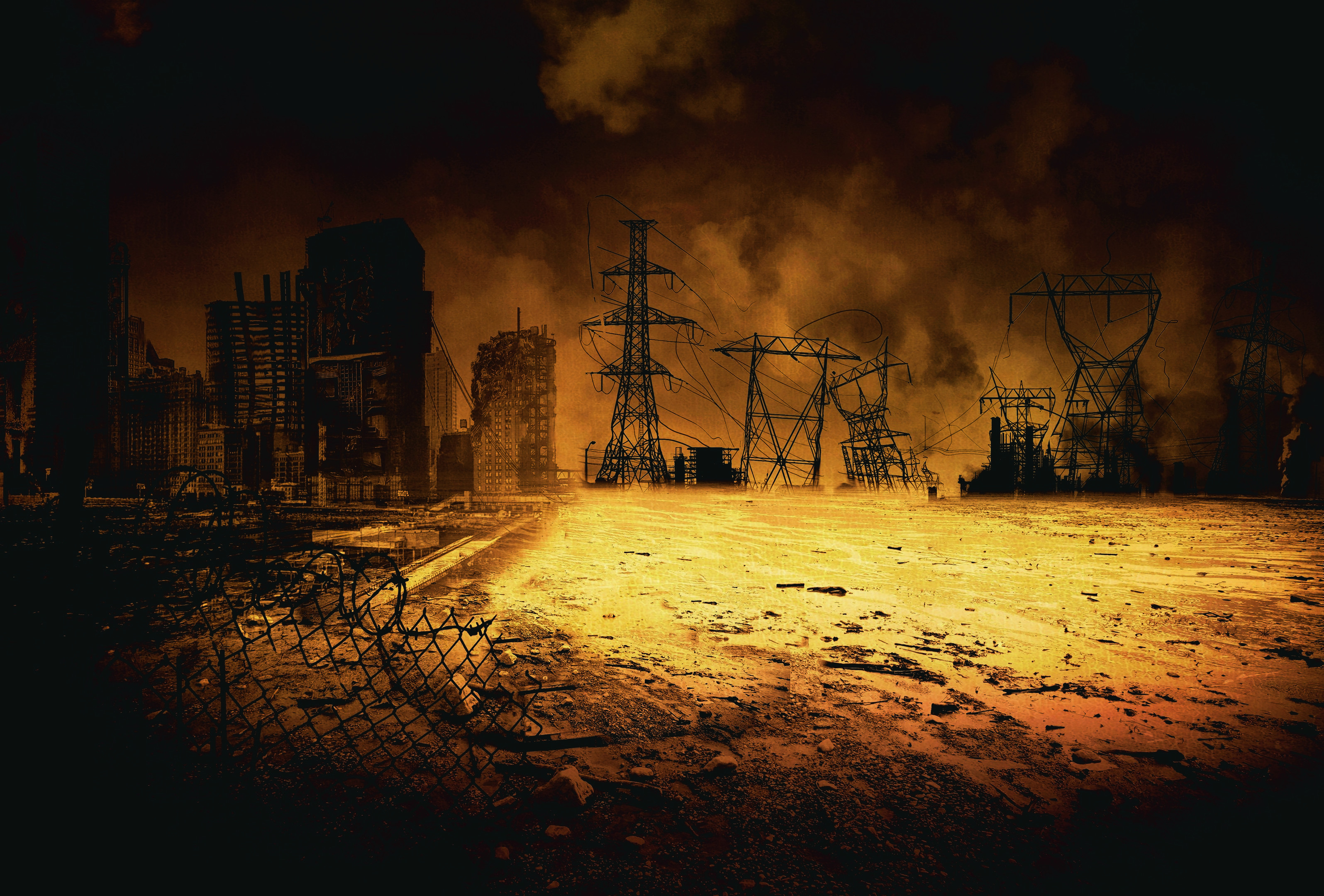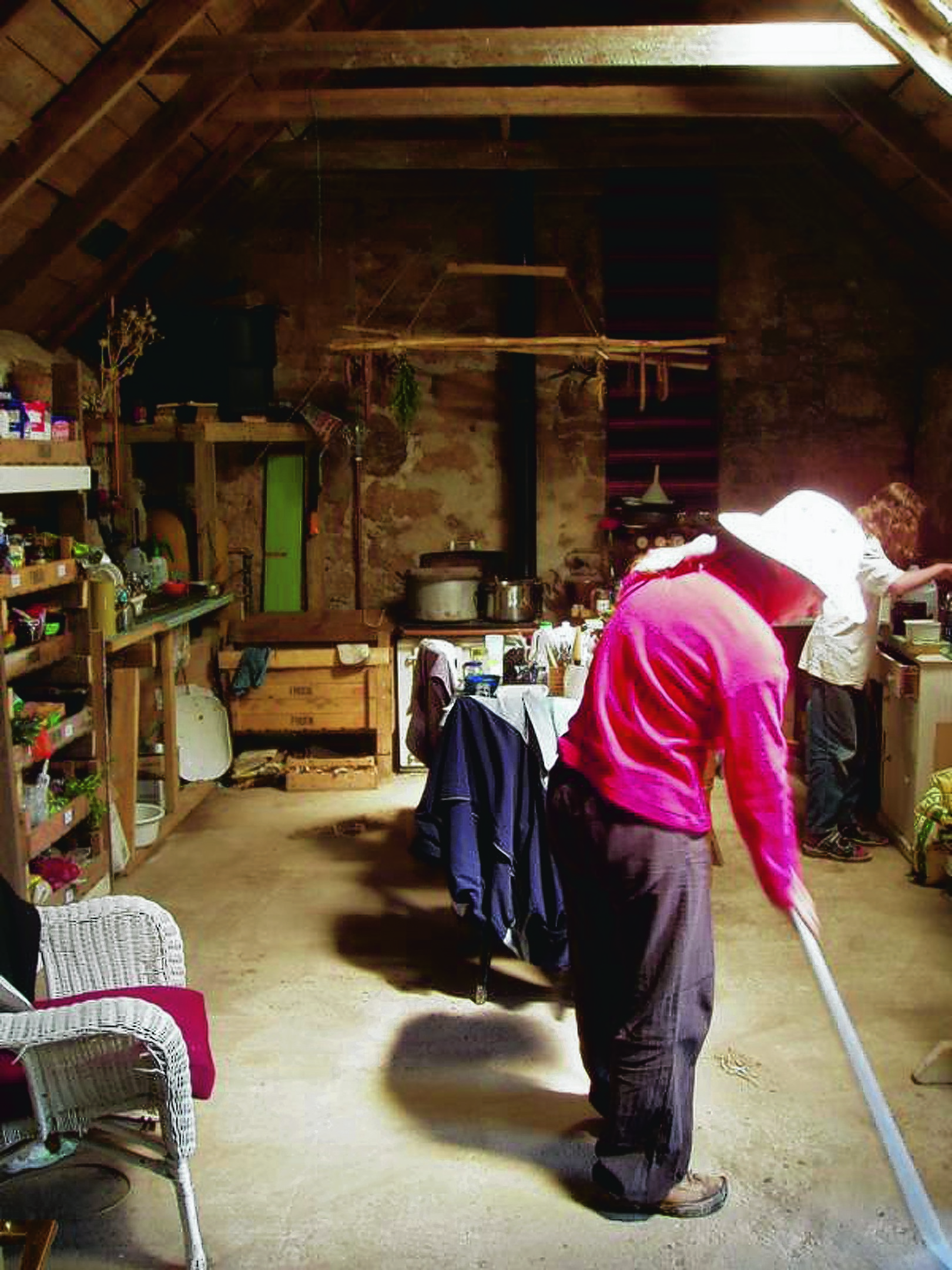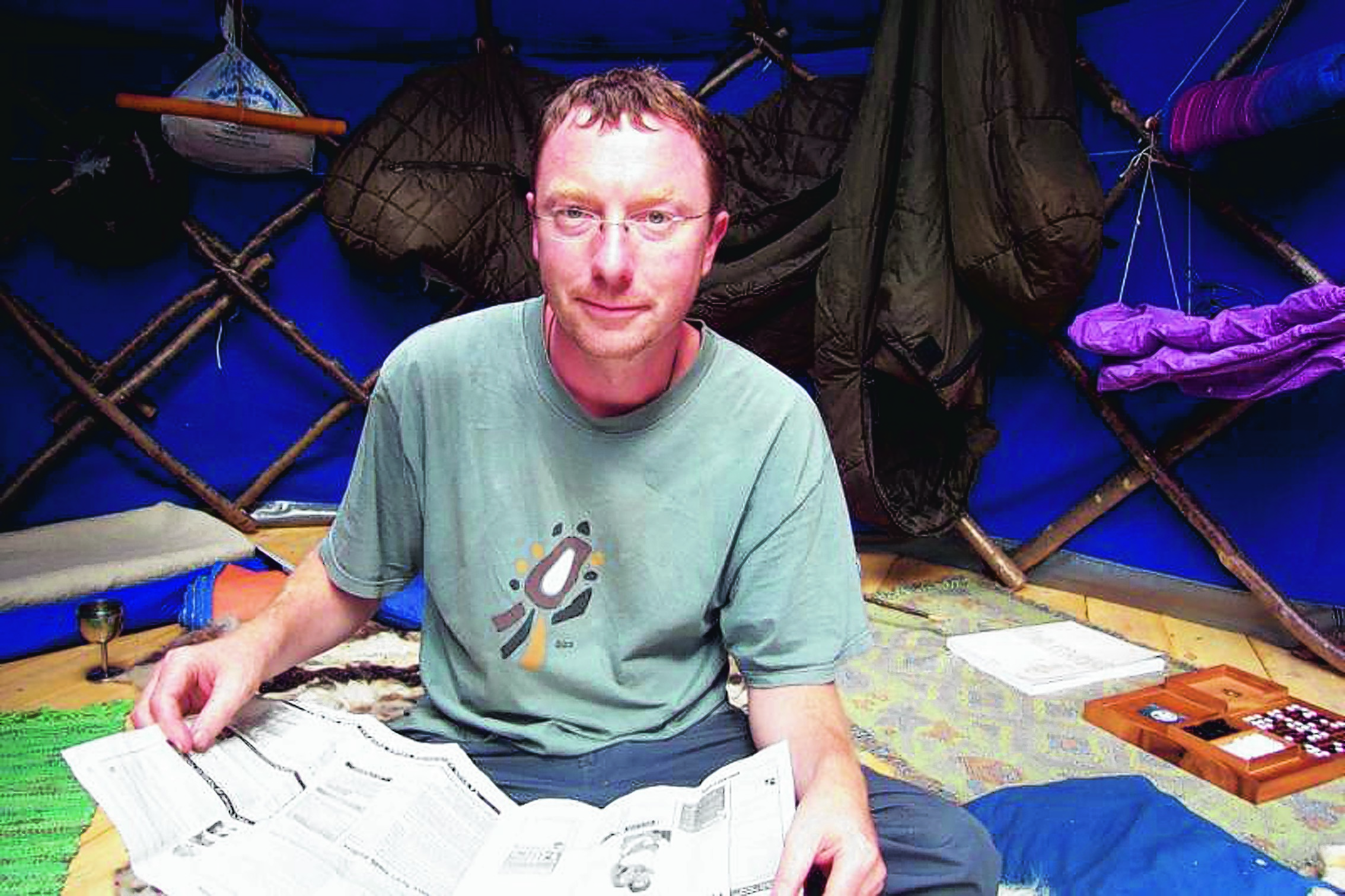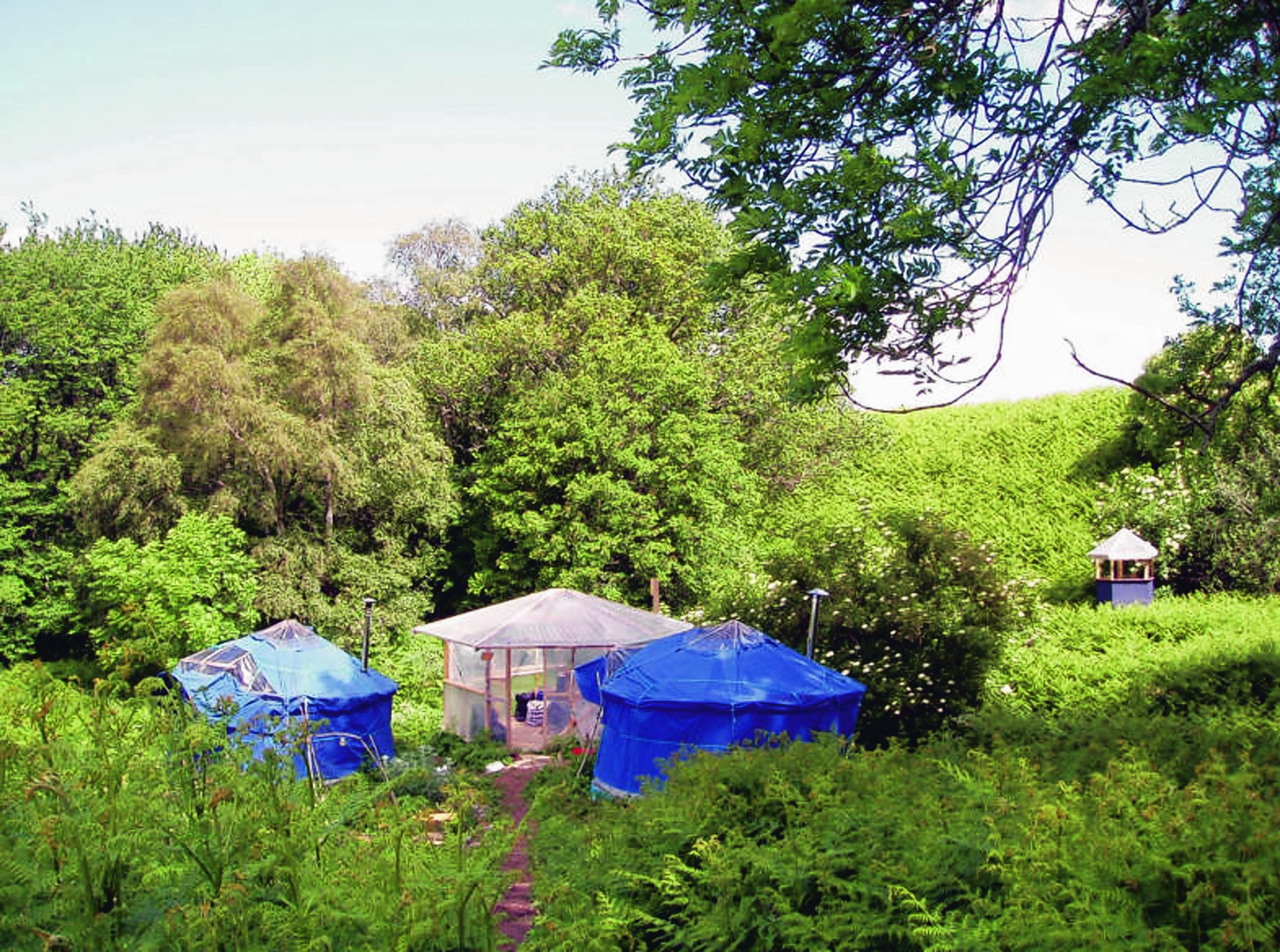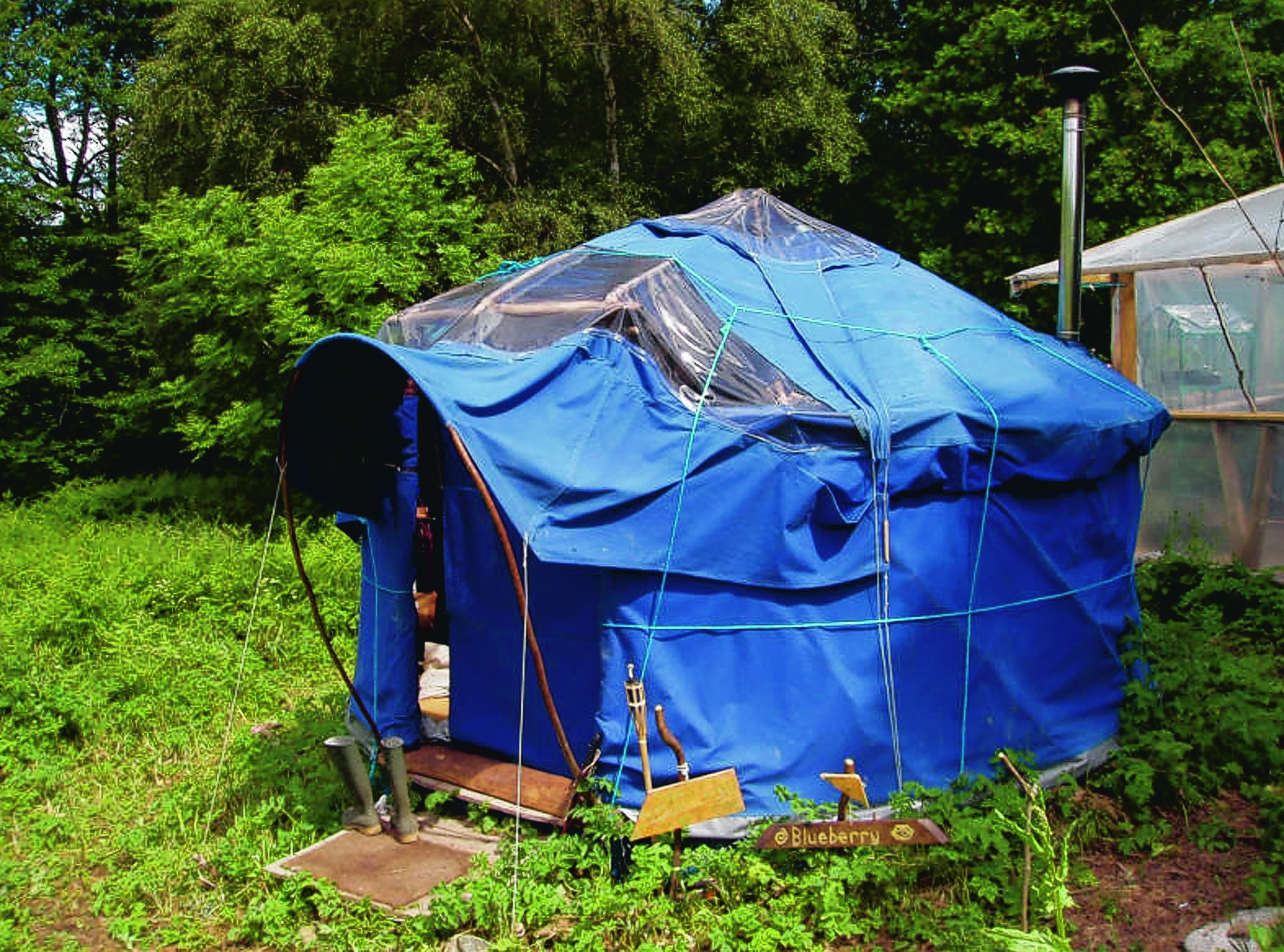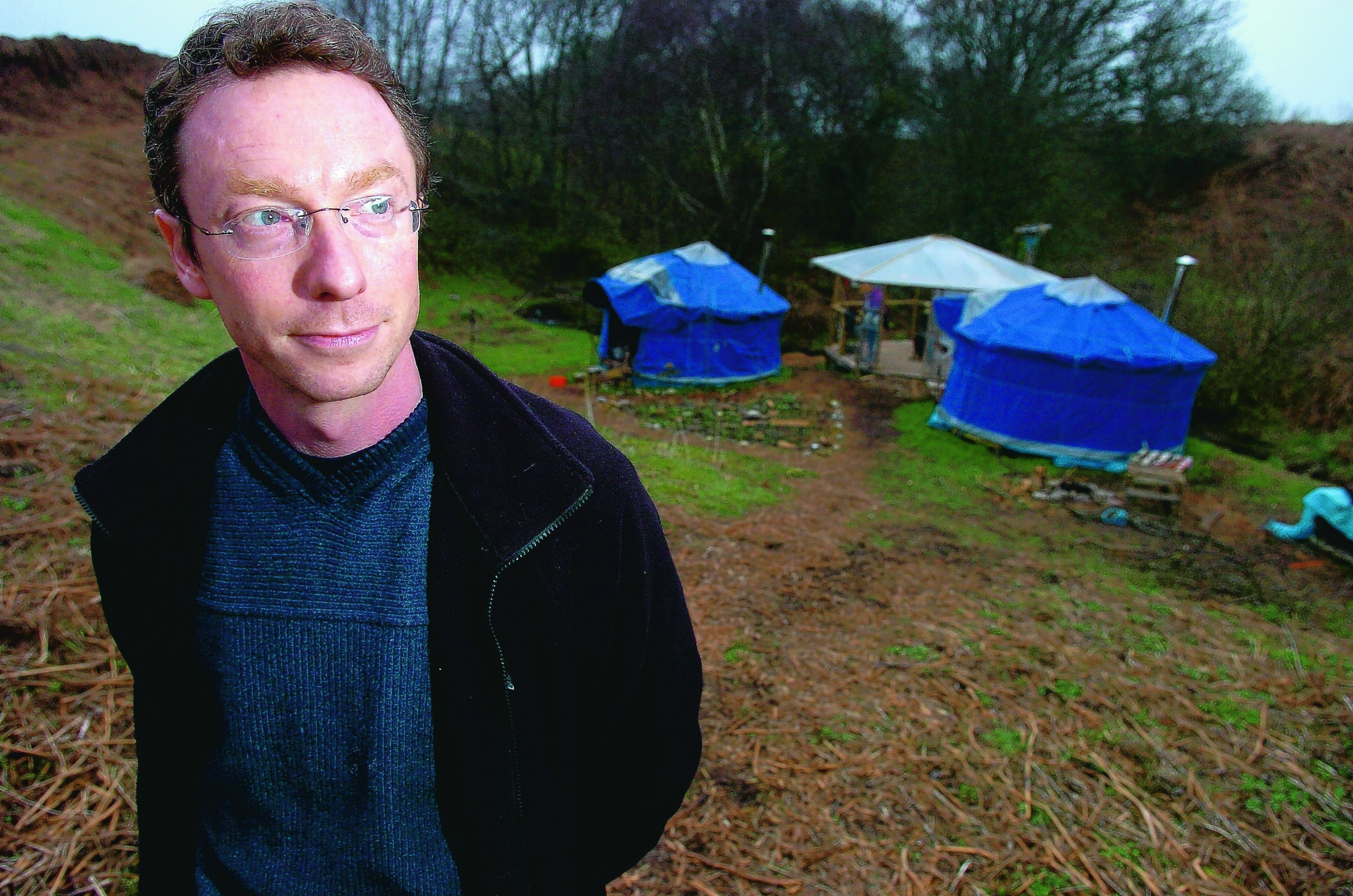If our civilisation as we know it collapsed, would we survive? Could we kill animals and prepare our own food without the help of electrical appliances? Could we spend our days chopping wood and build our own shelters? Or are we so dependent on technology that we would be at a loss
without it?
These were some of the thoughts academic Dylan Evans was pondering in 2006 while working in robotics in England. He believed at the time that we were heading into a sort of “Star Trek future” and it would be wonderful. Then he started becoming a bit sceptical.
“I feared that we might drift into a position where we are so dependent on machines, we couldn’t switch them off because we couldn’t live without them. So I became more and more sceptical about technology.
“I started reading a lot and some quite famous scientists were talking about whether this modern technological civilisation could collapse. There have been many civilisations in the past that have collapsed – the Roman Empire, The Mayans – but they were all fairly pre-industrial and we tend to think now that couldn’t happen.
“But why not? Maybe it could, and so I started thinking about if it did happen, would we be able to survive? Have we already drifted into a position where we are so dependent on technology that we couldn’t survive without it or would it be possible for some survivors to relearn how to live in an old fashioned way?”
COSY CATASTROPHE
So instead of just sitting back and theorising what could happen, Dylan decided the best way to explore what life would be like in the aftermath of a global collapse would be to act out that exact situation.
A certain theory about global warming led him to the Scottish Highlands; the belief that it is going to get very hot in the south of the UK, too hot to survive and there won’t be enough rain to grow crops. While in Scotland, the rainfall would continue and if it warmed up a bit, that wouldn’t be such a bad thing.
And so he set up a camp at Culbokie on the Black Isle near Inverness – and called it Utopia – and put an appeal on his website asking for volunteers to take part in a “post apocalyptic” experiment. It was to run for 18 months but volunteers could come and go as they pleased. Looking back, Dylan said he had some “very naive predictions” about what was going to happen.
He said: “I thought it was going to be very rosy and wonderful, that if we got past the first initial practical survival element, people might end up being a lot happier without technology around us.
“There’s a phrase that a science fiction writer coined, ‘cosy catastrophe’ and it’s surprising how many people believe in that; many people just laugh at the idea, most people would probably think it would be more like the movie, The Road where it’s a very bleak, horrible time. But there is this belief in some science fiction writing which sees the collapse of technology being perhaps a good thing – we’re all stressed and unhealthy and obese and maybe if we just went back to living in a more natural way we might end up being happier. That was the main idea I had.”
Over the course of the experiment, Dylan said they had around 50 volunteers with as many as 15 at any one time. Ages and backgrounds ranged from a 67-year-old retired teacher to families with young children. Among the participants was Dylan himself, a fact he admits now ended up being part of the experiment’s downfall.
“I had two roles – one was organiser and other one was participant. In the end that was part one of the problems because I didn’t do either particularly well. One moment I’d be distracted getting stuck into day to day life, planning something, then next moment I’d be planning something and I’d be distracted by helping run after an escaped pig.”
On a day to day basis the participants spent their time doing manual work such as preparing the land for food and chopping wood while at night they would sit around and chat before retiring to their yurts.
DRIFTED INTO A DEEP DEPRESSION
For a long time, Dylan’s prediction that it would “all be rosy” seemed to be coming true, especially in the summer months when it was still warm and chopping wood in the sun was a great alternative to sitting in an office all day.
He said it wasn’t just him either that enjoyed it; most people who signed up had a great time – apart from one woman who got out her car, took one look around and got back in and left.
But for Dylan the happiness wasn’t to last and around a year in, he admitted he “stopped enjoying it”.
“I was slipping down into a depression. I had suffered from depression a few times before but I had always gone to the doctors straight away and got antidepressants and they worked well. I’d always managed to work throughout previous episodes.
“But this time I didn’t take any antidepressants because there weren’t any doctors in a post apocalyptic world. And anyway I’m back in nature, I should be happy, there shouldn’t be a need for antidepressants. It got worse because I didn’t deal with it. I started drifting into a deeper depression than I ever did before.
“In the end I was really suicidal so I went to a local doctor. I told him what I was doing, that I was living in this post apocalyptic experiment and he was like ‘oh this is a bit above my head’ and so he recommend I see a psychiatrist.”
This meeting would eventually lead Dylan to being admitted to a psychiatric hospital for a month. When he was released he returned to Utopia but only to tell his volunteers the experiment was over.
“People told me ‘we like it here, we’re staying’. I kind of thought I could say to them ‘right it has gone on long enough, the experiment is over’ and they would all go away. But they didn’t so it wasn’t my experiment in the end, it was theirs.”
THE STANFORD PRISON EXPERIMENT
Another problem that Dylan admits now he should have foreseen happening was that the people in the experiment began to actually believe they were in fact living in a post global collapse. It’s nothing new in social research however and Dylan spoke about the Stanford Prison experiment as an example. It was a study of the psychological effects of becoming a prisoner or prison guard. It had to be stopped after just five or six days after “the guards” became really cruel towards those playing the role of the prisoners.
“What this teaches is if you start to act something out and intensely imagine yourself in a kind of situation, it very quickly becomes real for you,” Dylan explained.
“So there was time when I started to wonder whether the boundary between fantasy and reality was becoming rather blurred and people were acting and talking like as if
they really believed civilisation had really collapsed which was quite scary.
“I think I was drifting that way too but when I saw people taking it more seriously than I had imagined they would then that made me realise that it was going a bit too far.”
WHO WOULD WANT TO LIVE IN THIS KIND OF WORLD?
For a long time, Dylan said he couldn’t make sense of what had happened and continually changed his mind about his conclusions. Now with fairly stable observations he has decided to speak about his experiment – and write a book, The Utopia Experiment.
He said much of his analysis is about the likelihood of a real disaster occurring but he also learned a lot about himself too.
“One of my main conclusions is there is a risk of this sort of thing happening but its a lot less probable than I thought at the time,” he said.
“Modern civilisation is a lot more robust, I’m not saying it won’t happen but it’s not the sort of thing we should all be rushing out and becoming survivalists for. And also if it did happen it definitely wouldn’t be a cosy catastrophe, it would be a nightmare.
“I’m not even sure I would want to survive. In The Road movie, the father and the young boy are traipsing across this desolate landscape but the mother isn’t there because she’s committed suicide and now I think maybe that is the rational thing to do, who would want to live in that kind of world?
“The survival instinct is pretty strong so there would be people who would just survive whatever but I don’t think it would be a pleasant existence.”
One of the most surprising things to me about Dylan’s thoughts about the experiment was that for a long time he thought it was the worst mistake of his life – and how he was deeply ashamed about it because, in his eyes, it ended so badly.
But now he takes a different viewpoint – one that is much closer to my own about his decision to explore the idea of the survival of the human race.
“Now I’ve kind of come to a position where I am glad about it,” he said. “Even if it did turn into a nightmare in the end. A lot of people have dreams but they never do anything about it. But I did and, OK it turned into a nightmare, but at least I followed my dream. I learned a lot and I learned a lot about myself.”
NO ULTIMATE INSURANCE POLICY FOR SURVIVING THE APOCALYPSE
It was a lesson that Dylan admits was an expensive one in certain respects. To achieve his dream he gave up his job and sold his house to fund the project – and after it was done all he had left was the possessions he had in a field in the Highlands.
But it was also a cheap lesson, Dylan explained, as he discovered that one of the biggest things he got out of it all was that he is no longer afraid of what is going to happen in the future.
He added: “I don’t think its worth spending too much time preparing either. There is no ultimate insurance policy for surviving the apocalypse. Anything can happen and if we spend our lives worrying about the future, we aren’t going to enjoy the present so I don’t actually think about the future very much at all.”
